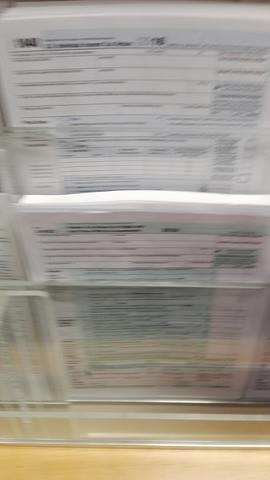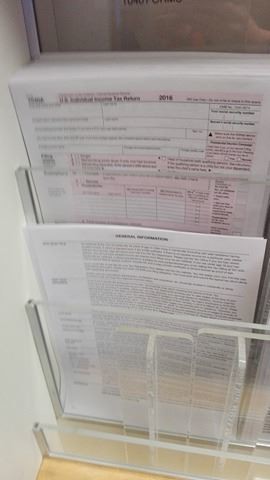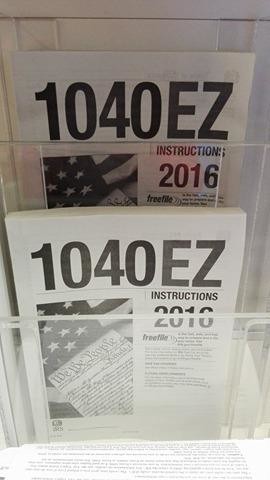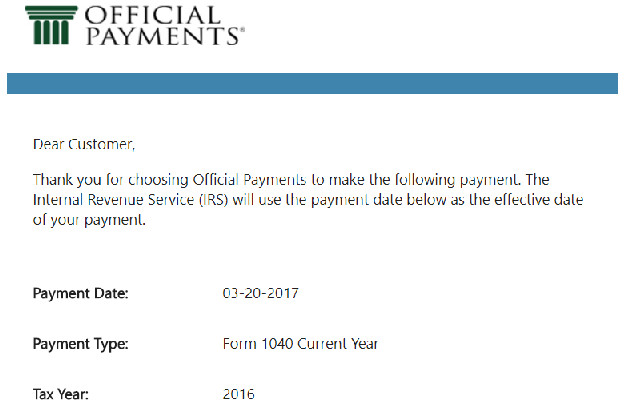Paying your taxes in the United States
In my home country, taxes are automatically deducted from your monthly paycheck. For example, in theory, you earn 1600 Euros, but you only get around 800 Euros deposited in your bank account. The reason for that are the taxes, and the money goes toward our free healthcare, maintenance of roads and other things. Well, the situation in the United States of America is a little different - everybody has to pay their taxes once a year.
And, unlike in my home country, the more you earn here in the States, the higher your taxes will be. For example, my employers are both doctors, and they each own over 100, 000 dollars in federal taxes each year. Since this is my second year in the United States, I had to pay my taxes for last year so I (more or less) know how to do it now and I would like to share a few tips with you about paying taxes in the States.
Difference between federal, municipal and state taxes
Wait, there is more than one kind of taxes I have to pay? Well, depends on the state you live in. Luckily, Ohioans do not have to pay state taxes and I am happy I live in Ohio! Of course not just because I do not have to pay state taxes here and I can save some money because of that, but also because Ohio is a beautiful state. But even if you do not have to pay state taxes, everyone has to pay federal taxes.
And there is another kind of taxes mostly everybody has to pay - municipal taxes. The amount you have to pay in municipal taxes depends on the area you live in. The more rich and developed the area is, the more money is needed for its maintenance, and the higher municipal taxes will be. Luckily, my employers pay the municipal taxes for me, so I only have to pay federal taxes. But that is still a fair amount of money.
When and how much to pay?
There are different tax forms for different people, so you need to check with your employer which form will you need. For example, for temporary residents, a tax form is different than the one for permanent residents. I took this picture before doing my taxes for the first time this year because I was not sure which form was right. See how there are four different forms here, depending on what you do, so make sure you choose the right one.



A tax year lasts between first day of January and last day of December every year. But you have time to pay your taxes until April next year. From my own experience, do not leave doing your taxes until the last day, because it requires quite a lot of work, and you also have to submit proof of payment to the IRS!
If you come to the United States in the middle of the year, you (obviously) only have to pay taxes for the time you were actually there. But, if you stay longer, you will have to pay more taxes, since you will earn more.
In general, if you earn more than 5000 dollars, you will owe some money in taxes. And it is easy to earn more than that here. But a good thing is, that there is a thing, called personal exemption amount, which varies each year, but it is usually around 4500 dollars. What does that mean? It means that if you earned 20, 000 dollars in a calendar year, you can deduct the personal exemption amount from that number, and the number you get, will be your taxable income. So, if you earned 20, 000 dollars, your taxable amount will be 15, 500 dollars.
And if you earn a lot, make sure you put some money on the side each month for the purpose of paying taxes. If you don't, you will be surprised with a high amount that you will have to come up with when paying taxes. It is much easier to save up a little each month for that purpose, than having to find tens of thousands of dollars in a month or so.
How to do it?
You can either fill the tax form manually (you can get them for free at libraries etc. ) or online. There will be a lot of instructions to read, and it is a wise idea to read them carefully so you do not mess anything up and write the wrong amount. If your English is not on a native level, do not worry. There are a lot of unofficial guides that you can find online, that explain those instructions in a simple way and do not use complicated words. Some of those guides even offer a step-by-step guidance. And they are free.
It is easier to fill in the form online, of course, and once you are done, you get an e-mail confirmation. But your work is not done here - after submitting the form, you actually have to pay the money. You can either pay online or mail a check/money order to the IRS.
Just make sure, if you are doing your taxes online, that the company is legitimate. There are many scam sites out there, so be careful.
This is the confirmation e-mail I received after paying my taxes online:

Submitting a proof of payment
If you pay your taxes online, you have to print the confirmation email and send it to an IRS address that says Paid online. If you are enclosing a check or a money order, you have to send it to a different address - the one that says Payment enclosed. Make sure you are not sending actual money - they will not accept it! It is not guaranteed you will get it back, and it will still mean that you did not pay your taxes!
It is funny how you get no confirmation from IRS (Internal revenue service - where you sent your money) that they received your confirmation of payment. But this is completely normal, and I said to myself last year: since no one came to my house and put me in jail, that must mean they received the money from me.
What happens if you do not pay your taxes?
A friendly advice - do not even think about not paying your taxes. In our teenage years, when we all paid attention to a lot of music and movie stars, we probably all came across an article or two that told us our favourite celebrity was accused of tax fraud and had to go to jail. And that is what not paying taxes is - a tax fraud.
On a Facebook nanny group I belong to, there are several discussions about that topic. Some of the nannies did not pay taxes and when they wanted to re - enter the United States of America after a few years for vacation, they were not let into the country simply because they did not pay taxes in the past.
You might be reading this and thinking: Ah, once I leave, I will not return to the States again, so I will not pay taxes. Some of the nannies in that Facebook group reported that received a note when they were already back to their home country, that they have to pay taxes. And the later you pay, the more interest they will add on top of the total amount you owe in taxes.
I do not really feel like filling out the forms by myself. What can I do?
If you are too lazy to do all the work that filling a tax form requires, or if you would like to leave it to someone who knows what they are doing, there is still hope for you! Many companies in the United States will gladly fill out your tax forms for you. But, of course, you will have to pay them for their services.
The company that my nanny agency recommended, is called HR Block, but there are plenty of others. All they need from you is the history of all the paychecks for that year and your personal information.
Be aware of the fact that the closer to April you ask them for help, the more expensive it will be. But even if you do it last minute, you will still not pay more than 150 dollars. If you do it at the beginning, they will charge around 75 dollars.
I think those companies are great, but I filled the tax form by myself (and I will do it again next year) simply because I saved some money that way.
Photo gallery
Content available in other languages
Want to have your own Erasmus blog?
If you are experiencing living abroad, you're an avid traveller or want to promote the city where you live... create your own blog and share your adventures!
I want to create my Erasmus blog! →







Comments (0 comments)